ARE WE THE BOOKS WE READ?
ARE WE THE BOOKS WE READ?
asks Norman Warwick as he reads Vivien Gornick´s reading
She was born in 1935 and raised in the Bronx. After studying at university, she began writing at the Village Voice—where she began to give the feminist movement a tone to become one of America’s most recognizable movers and shakers in this field—and later in media such as The New York Times or The Nation. She is the author of a number of essays, critical texts, journalistic texts and memoirs, always from a clear gender perspective, which has been her key feature as a journalist and writer. Since Vivian Gornick received a bachelor of arts degree from City College of New York, and in 1960 a master of arts degree from New York University, she has written fifteen books. She recalls ´being really impressed with the experience of reading´ by the book Little Women. ´It went right into me,´ she says now. So come follow your art across the sidetracks and detours of cropwded bookshelves and we consider whether we define our own reading, or whether our own reading defines us.
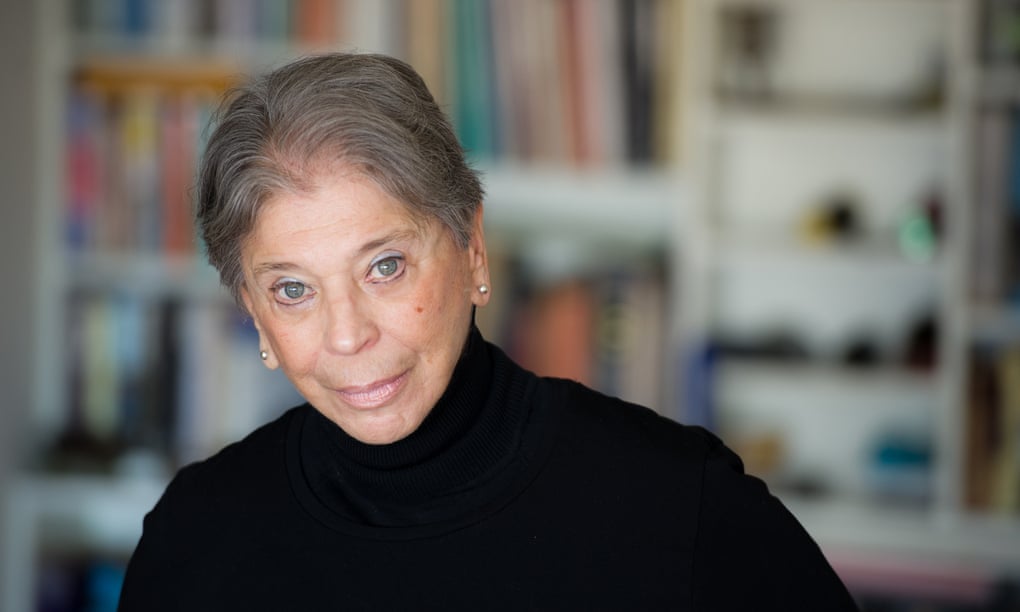
Vivien Gornick (left and on our cover) was a reporter for the Village Voice from 1969 to 1977. Her work has also appeared in the New York Times, The Nation, the Atlantic Monthly, and many other publications. In 1969, the radical feminist group New York Radical Feminists was founded by Shulamith Firestone and Anne Koedt; Firestone’s and Koedt’s desire to start this new group was aided by Gornick’s 1969 Village Voice article, The Next Great Moment in History Is Theirs. The end of this essay announced the formation of the group and included a contact address and phone number, raising considerable national interest from prospective members.
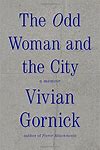
Gornick has also published fifteen books; the most recent, The Odd Woman And The City, was published in May, 2015. This was a contentious, deeply moving ode to friendship, love, and urban life in the spirit of Fierce Attachments A memoir of self-discovery and the dilemma of connection in our time, The Odd Woman and the City explores the rhythms, chance encounters, and ever-changing friendships of urban life that forge the sensibility of a fiercely independent woman who has lived out her conflicts, not her fantasies, in a city that has done the same. Running steadily through the book is Vivian Gornick’s exchange of more than twenty years with Leonard, a gay man who is sophisticated about his own unhappiness, whose friendship has “shed more light on the mysterious nature of ordinary human relations than has any other intimacy” she has known. The exchange between Gornick and Leonard acts as a Greek chorus to the main action of the narrator’s continual engagement on the street with grocers, derelicts, and doormen; people on the bus, cross-dressers on the corner, and acquaintances by the handful. In Leonard she sees herself reflected plain; out on the street she makes sense of what she sees. Written as a narrative collage that includes meditative pieces on the making of a modern feminist, the role of the flaneur in urban literature, and the evolution of friendship over the past two centuries, The Odd Woman and the City beautifully bookends Gornick’s acclaimed Fierce Attachments, in which we first encountered her rich relationship with the ultimate metropolis.
She has taught writing at The New School. For the 2007–2008 academic year, she was a fellow at the Radcliffe Institute at Harvard University, and in 2015 she served as the Bedell Distinguished Visiting Professor in the University of Iowa‘s Nonfiction Writing Program.
In March 2021 Gornick was awarded the Windham–Campbell Literature Prize for nonfiction.
She spoke recently with The Guardian on their books pages about what she ´learned from Natalie Ginzburg, the genius of Geoff Dyer´s comedy and why she think James Salter is over-rated-
The journalist and memoirist on learning from Natalia Ginzburg, the genius of Geoff Dyer’s comedy, and why James Salter is overrated. A headline that said she ´couldn´t finish Becoming. Michelle Obama´s book´, drew my attention to the article that actually then led me through sidetracks and detours around my own chosen reading to wonder why we each read what we read.
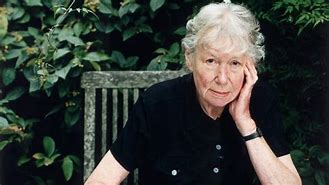
Vivien herself was reading, around the time of the interview, Penelope Fitzgerald: A Life by Hermione Lee. (Penelope is shown left) ´I had actually never read anything by Lee before,´ she told the Guardian. ´I’ve only read 50 or 60 pages, but her style is immensely appealing. The sentences are very simple, there’s no fancy writing. Lee somehow puts things together in such a lively way that I feel as if I’m listening to her. She hits that marvellous conversational style. I like Fitzgerald’s work and it’s a pleasure seeing how she developed. I’m enjoying it very much´.
The book that ´changed her life´ wasn´t read until she was in her thirties but as soon as she began to reading The Little Virtues by Natalia Ginzburg she felt herself ´deeply connected.
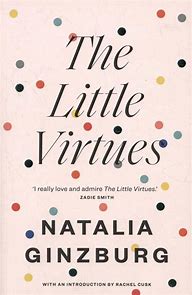
It isn’t that it’s the greatest book in the world´, she told the newspaper, ´but for me it was vital. I felt she was showing me the type of writer I had it in me to be. One of the essays, My Vocation, really hit the nail on the head. I identified profoundly with the way in which Ginzburg traced her own development as a non-fiction writer. It made me realise that it was only through this kind of writing I could employ my own story-telling gifts. I re-read it irregularly but quite a lot, and I’m always amazed by what she is able to accomplish with the small personal essay´.
Vivien is not automatically an admirer of any work and feels ´A Sport and a Pastime´ by James Salter is immensely over-rated. I could have picked a hundred books (I feel that way about), but this is the one that has been stuck in my craw for a long time.
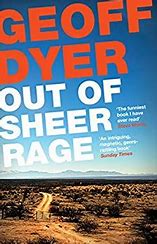
She is, though, quick to praise where she feels it is deserved and names Out Of Sheer Rage as a brilliant book. ´For me´, she says, ´the best thing he ever wrote. A little bit of genius, it made me laugh, and laugh, and laugh.´
Like many of us, of course, Vivien likes both books that make her laugh and those that make her cry, such asJust Mercy by Bryan Stevenson.
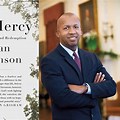
´It’s written by Geoffrey Dyer (right), an Ivy League-educated, middle-class black lawyer who went to work for a non-profit organisation set up to defend the people on death row in the south,´ Vivien explained in the Guardian. ´It is the story of what it means to be on death row in Georgia and Alabama and is enough to break your heart fifteen times over. His description makes it sound like South Africa before apartheid was ended. A nightmare, but a wonderfully written book´.
I guess all of us have encountered at least one book in which we never reached the final page. I was slightly surprised when I read that Ms. Gornick´s nomination for this wooden spoon was Michelle Obama’s autobiography, Becoming.
´Yes, she’s a very nice woman,´ she affirmed for The Guardian, ´but I found the book tedious, and it just didn’t hold my interest.
She also names Thomas Mann’s The Magic Mountain in the same category, though she has pangs of guilt about this, saying ´I’ve started it 100 times over – I just can’t get into it. I always feel bad about that. I don’t think I’ll try again.´
She chooses carefully the books she buys as gifts for others.
´This depends on who I’m giving the book to. It’s like giving any other kind of gift: you try to keep in mind what the recipient will like, not what you like´she explains. ´However, it always has to be something I consider substantial. I would never give somebody the current fiction bestseller or anything like that. If I give a book, it’s one that I value, but most importantly one that the other person will value too.

Vivien Gornick seems to have certainly followed her own sidetracks and detours through literature, as both writer and reader, since the first book she ever read as a child, which she says wasLittle Women by Louisa May Alcott.(left)
´Our house was full of books and my parents encouraged me to read, but I don’t remember any childhood stories like Winnie the Pooh. I remember fairy tales like the Grimms’, but the first time I was really impressed with the experience of reading was Little Women. It went right into me.

The book she turns to for comfort isThe Odd Women by George Gissing.(cover shown right)
¨There was a time,´ she admits, ´when I read that book every six months, usually in the winter, for quite a number of years. It’s a book that I treasure to this day.´
Vivian Gornick’s books include Approaching Eye Level (Daunt). She has received a Windham-Campbell prize 2021 for nonfiction. For further information about this year’s recipients visit www.windhamcampbell.org.
also read
Vivian Gornick: ‘Thinking is the hardest thing in the world’ | Essays | The Guardian
ACKNOWLEDGEMENTS
The prime source for this article was a piece written by Vivian Gornick, for the Village Voice. Other attributions, where possible, have been made in the body in our tex.t
Images and photographs employed have been taken from on line sites only where categorised as images free to use.
For a more comprehensive detail of our attribution policy see our for reference only post on 7th April entitled Aspirations And Attributions

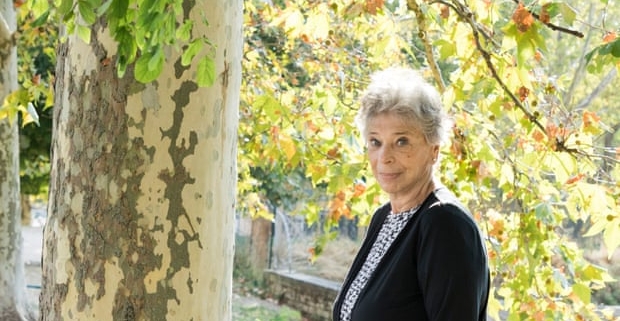


Leave a Reply
Want to join the discussion?Feel free to contribute!